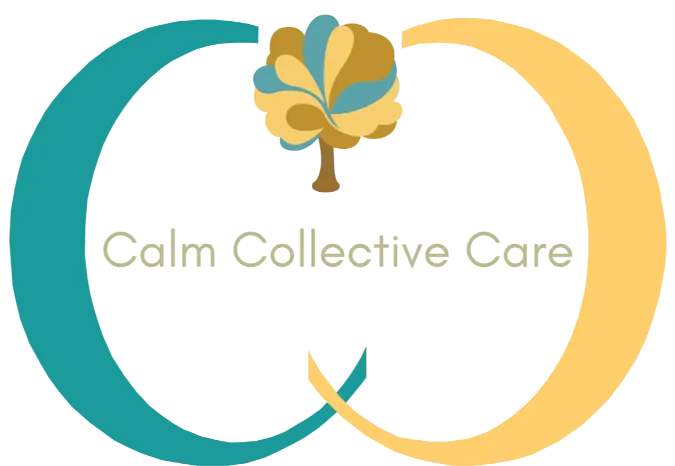Mindfulness and Hypnosis: A Modern Partnership for Calm and Healing
Oct 19, 2025
Let’s be honest — life gets busy. Our minds race from one thing to the next: caring for others, managing responsibilities, juggling constant noise and notifications. It’s no wonder we feel overwhelmed or disconnected at times.
But underneath all that busyness, there’s a quieter space — a place of calm that’s always been there. Mindfulness and hypnosis are two beautiful ways to return to that calm, to reconnect with yourself, and to support your natural ability to heal.
What Exactly Is Mindfulness?
Mindfulness is simply the practice of being present. It’s noticing what’s happening right now — your breath, your thoughts, the sensations in your body — without judgment.
It’s not about “emptying your mind” or forcing yourself to feel a certain way. It’s about allowing whatever is here to be here.

This idea, though ancient in origin, was brought into modern medicine by Dr. Jon Kabat-Zinn, who developed the Mindfulness-Based Stress Reduction (MBSR) program. His book Full Catastrophe Living (1990) became a cornerstone in helping people use mindfulness to manage stress, pain, and illness.
Dr. Kabat-Zinn describes mindfulness beautifully:
“Mindfulness means paying attention in a particular way: on purpose, in the present moment, and nonjudgmentally.”
When we practice mindfulness, we give ourselves permission to slow down. We learn to breathe again, to listen to our own needs, and to find clarity in the middle of chaos.
How Hypnosis and Mindfulness Work Together
As a professional hypnotist, I see mindfulness and hypnosis as close cousins — both invite us to focus inward, yet they serve slightly different purposes.
Mindfulness helps you observe what’s happening inside you with curiosity.
Hypnosis helps you transform it through suggestion and imagination.sdom — allowing you to access inner calm, hope, and resilience even when the external world feels dim.
|
Aspect |
Mindfulness |
Hypnosis |
|---|---|---|
|
Focus |
Awareness of the present moment |
Guided attention toward a goal |
|
Goal |
Acceptance and observation |
Transformation and change |
|
Shared Benefit |
Calm, clarity, emotional balance |
Relief from stress, pain, or unwanted habits |
Dr. Michael D. Yapko, author of Mindfulness and Hypnosis: The Power of Suggestion to Transform Experience (2011), explains that both practices use focused attention and self-awareness. The difference is intention: mindfulness invites presence; hypnosis invites change.
When we combine them, the result is profound — awareness blended with intention. You calm your mind and, from that peaceful place, begin to reframe old patterns or create new, empowering responses.
Hypnosis in Healthcare and Everyday Life
Hypnosis has quietly made its way into hospitals, clinics, and wellness centers around the world. It’s now used to ease pain, reduce anxiety, support healing, and even prepare patients for surgery or dental procedures.

In my own practice, I see hypnosis as a bridge between the medical world and the inner world. It doesn’t replace medical care — it complements it. Hypnosis helps you work with your mind and body, not against them.
When I teach nurses and healthcare professionals how to use hypnosis, I often describe it as a modern healing conversation — one that honors both science and the power of suggestion.
The Three Phases of a Hypnotic Experience
Two pioneers in hypnosis, Drs. Herbert and David Spiegel, described hypnosis as something you do for yourself, rather than something done to you. They outlined three stages of the hypnotic process that I love to share:
- Aura – The Expectation
This begins before a session even starts. It’s the energy and belief you bring with you — your hope that something will help. When you expect hypnosis to work, you’ve already begun the process. - Enhancement – The Ceremony
This is the moment of settling in — guided breathing, mindful focus, relaxation. It’s a gentle ceremony that helps you slip into a calm, focused state where your mind becomes open and curious. - Plunge – The Experience
The “plunge” happens when you fully relax into the experience. It’s not about losing control; it’s about deepening trust. You discover that you are in charge of your own inner landscape.
Why Mindfulness and Hypnosis Work So Well Together
Both practices strengthen your mind–body connection. They help you regulate stress, manage symptoms, and reconnect with your inner wisdom.
Hypnosis and mindfulness can support:
- Stress and anxiety reduction
- Pain and symptom management
- Better sleep and relaxation
- Preparation for medical or dental procedures
- Health behavior changes (like quitting smoking or improving self-care)
When your body feels calm and your mind feels safe, healing happens more easily.
Bringing Calm Into Everyday Life
You don’t need a therapist’s office or a meditation cushion to begin. You can start right now:
- Take a slow, mindful breath in.
- Notice how it feels to exhale fully.
- Imagine that breath carrying away tension, doubt, and distraction.
That’s mindfulness in motion — and it’s also the beginning of hypnosis.
When we learn to pause, we create space for peace, focus, and healing to unfold naturally.
Moving Forward
At The Calm Collective Care, we are committed to making these life-changing benefits accessible to everyone. Thanks to the flexibility of Zoom sessions, you can now experience the power of hypnosis from the comfort of your home. Whether you are seeking help with a chronic condition or for another reason, our holistic approach—blending hypnosis, coaching, and mindfulness techniques—can help you unlock your body’s natural healing potential.
If you are ready to experience the transformative power of hypnosis, we invite you to connect with us today. Let’s work together to unlock your body’s natural healing abilities and help you live life to its fullest.
Incorporating hypnosis into your daily routine can be simple and incredibly rewarding. Here are some practical ways to get started:
- Guided Hypnosis Sessions: At Calm Collective Care, we offer guided hypnosis sessions every Friday at 11:30 AM PST. These sessions are designed to help with confidence building, stress reduction, and more. If you cannot attend the live session but have signed up, you will still receive access to the recording, allowing you to benefit from the session at your convenience. To participate, simply sign up here and join us for a live session or listen to the recording at a time that works best for you.
- One-on-One Hypnosis: For a more personalized approach, consulting with a certified hypnotist can offer tailored strategies that align with your specific goals and challenges. At the Calm Collective Care we have a variety of practitioners ready to chat about hypnosis and how it might help your individual situation. We offer a free 15-minute consultation to go over any questions you may have. [Link to 15-minute phone call]
To experience hypnosis firsthand, check out the Calm Collective Care and take advantage of our free Friday sessions. Link to sign up for Friday session.
Additionally, you can browse our team of practitioners and schedule a call.
Guest Author:
Hannah Henjum
Consulting Hypnotist, NLP & Time-Line Therapy® Practitioner
Specialties: Stress | Confidence
Hannah specializes in helping clients overcome stress and build confidence and joy in their daily lives. She uses hypnosis and NLP techniques to help individuals resolve the underlying mental and emotional blocks that affect their well-being and self-esteem. Her approach is centered on creating a balanced, fulfilling life for her clients, helping them develop strategies for long-term mental clarity and resilience. Hannah empowers clients to bring curiosity, joyfulness, and ease back to their lives.
References:
-
Kabat-Zinn, J. (1990). Full Catastrophe Living: Using the Wisdom of Your Body and Mind to Face Stress, Pain, and Illness.
-
Yapko, M. D. (2011). Mindfulness and Hypnosis: The Power of Suggestion to Transform Experience.
-
Spiegel, H., & Spiegel, D. (2004). Trance and Treatment: Clinical Uses of Hypnosis.
Be Calm ...
and experience hypnosis!
Hypnosis can help in many ways. Curious Minds should Stay Curious.
Boost Self-confidence • Lessen Anxiety • Grief• Cancer • Create Positive Mindset • Eliminate Limiting Beliefs • Improve Sleep • Manage Pain Better • Prepare for Childbirth • Enhance Performance • Heal & Resolve Grief • Change Habits • Weight Loss without Dieting • Smoking Cessation • Stress Reduction • Stop Teeth Grinding • & more
Connecting with me 1:1 is fast and easy!


